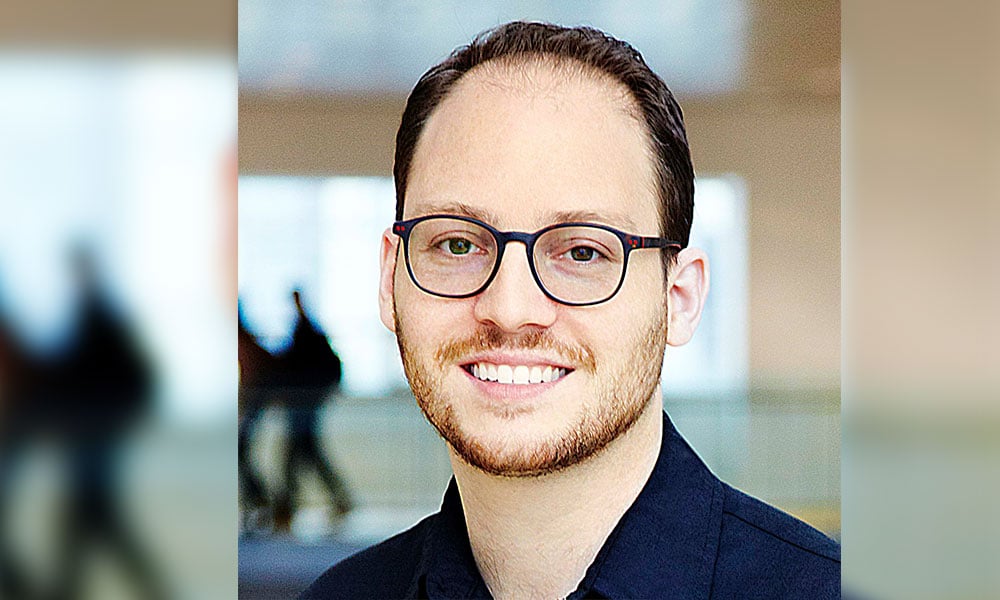Extraordinary measures taken by government include limits on mobility rights and data privacy

When the COVID-19 pandemic subsides and normalcy returns, Steven Hoffman expects to see Charter challenges to some of the extraordinary government measures taken to limit the virus’s spread.
One constitutionally questionable area of government action is the use of the Quarantine Act, says Hoffman, who is the director of the Global Strategy Lab, a professor of global health, law, and political science at York University, and the scientific director of the Canadian Institutes of Health Research’s Institute of Population & Public Health.
The Quarantine Act is always in effect, even outside of a pandemic, and it is what gives customs officials the right to ask travellers health questions at the border, Hoffman says, adding that there is a quarantine officer on standby at every international airport in Canada. The Act also allows the Minister of Health to designate a quarantine area and order Canadians into mandatory isolation.
On March 25, the Public Health Agency of Canada announced an emergency order that required anyone entering Canada to self-isolate for 14 days, regardless of whether they showed symptoms upon arrival. The Quarantine Act allows the Governor in Council to issue emergency orders and conditions on people entering Canada from a foreign country, if the Governor in Council decides doing so will prevent the spread of a communicable disease and there are no reasonable alternatives.
Currently, the Act is being used to prevent any Canadian citizen or permanent resident who shows COVID-19 symptoms from boarding a plane destined for Canada. Hoffman says this will likely be challenged on the grounds it limits mobility rights under the Charter.
“There's going to be at least one Canadian who is barred from boarding a plane, who's not going to be happy with it and is likely to challenge that order,” Hoffman says. “And it'll be interesting for what the courts end up saying.”
Charter rights under s. 1 are subject “to such reasonable limits prescribed by law as can be demonstrably justified in a free and democratic society.” Hoffman notes that in all responses to the pandemic, the government needs to show it “took a minimally impairing approach” to Canadians’ rights.
“These are extraordinary times that require an extraordinary response,” he says, and “the government will have to show that in order for it to protect the health of Canadians, there wasn't an alternative way that was less impairing of those travellers’ rights, other than not allowing them to board a flight destined for Canada.”
On Wednesday, the federal government announced that anyone returning to Canada, symptomatic or not, will have to check into a hotel “or other designated site” unless they have a self-quarantine plan deemed acceptable by government, the Canadian Press reported. The quarantine location will be designated by Canada’s chief public health officer.
How judges see these charter implications will depend on the extent to which they defer to the government’s risk assessments, says Hoffman.
“It needs to be a proportionate response that is informed by an actual assessment of risks and the extent to which that invoking quarantine would ameliorate the situation,” he says.
“During a time of emergency, the courts have, in the past, shown deference to government, which makes good sense; but how much deference?”
Prime Minister Justin Trudeau has not ruled out using personal data on Canadians, provided by cell phone companies, to track how people are complying with COVID-19 public health measures, The CBC has reported. If the government opts to take these steps, at what point will it relinquish these powers, asks immigration lawyer Sergio Karas.
“Will that authority be temporary? Or is this going to become a power grab that the government will use to continue to monitor citizens?” Karas says. “That is extremely worrisome.”
The other questions which need answering is who will handle this data, what safeguards will be applied and what recourse do Canadians have to challenge these actions, Karas adds.
The threat of government overreach is being acknowledged across the globe. Recently, 100 civil society groups from around the world signed a joint statement calling on governments to safeguard human rights as they use digital surveillance methods to address the COVID-19 crisis.
“Apple, Google and all these services,” says Karas; “they already know too much about us, right? So the question is, is there going to be a time in which all this data will have to be destroyed?”
“Governments … historically, around the world, tend to use these types of situations to impose measures that, at the beginning, they claim to be temporary, but they end up being permanent,” he adds.
But Hoffman says the “most interesting civil liberties question” is at the municipal level. In Toronto, there is a $1,000 fine for any two people in public, who don’t live together and who fail to remain two metres apart.
“I think that is a very worthy and important goal because physical distancing works, and we definitely need to all be doing it,” he says. “I think someone is certainly going to challenge that rule on the basis of either the rule itself being overly restrictive for what's needed, or … its unequal implementation and enforcement.”










